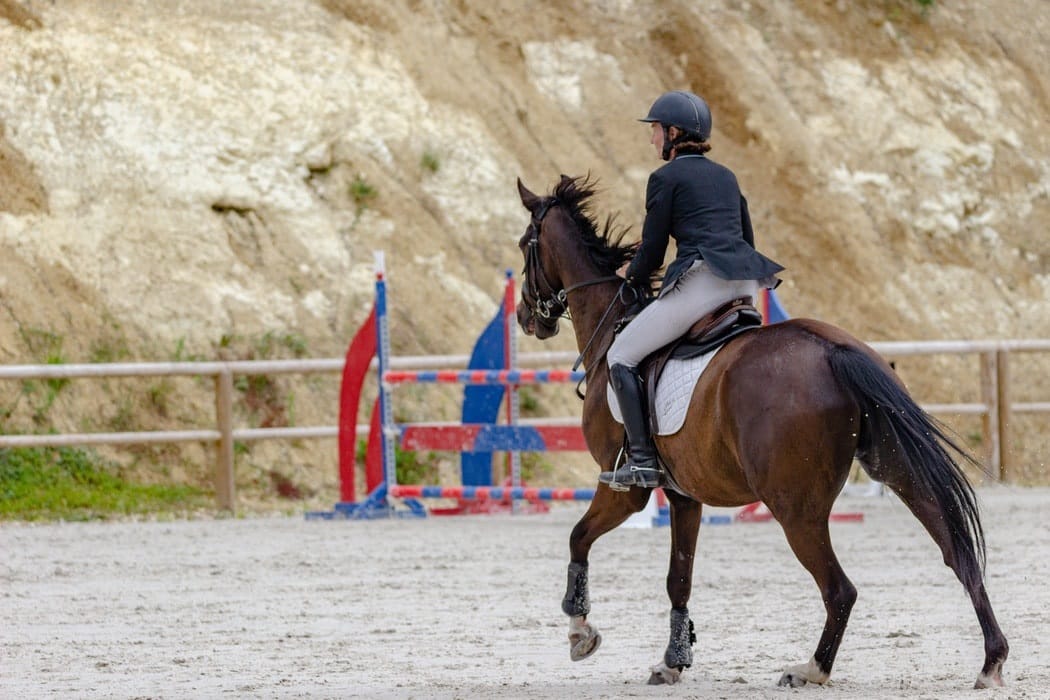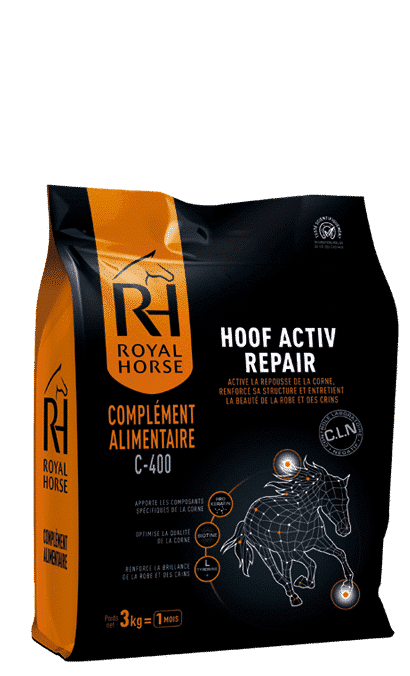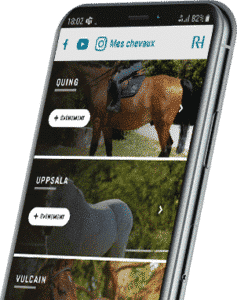Horses’ hooves are not always very strong. This may be due to the breed of the horse, its metabolism, certain genetic predispositions or even living conditions that are not conducive to good hoof quality. When a horse’s hooves are damaged, a course of the vitamin biotin should be considered. Although biotin is not a substitute for proper nutrition, it can promote hoof, mane, tail and coat growth.
What is biotin?
Biotin, also known as vitamin B8, plays an essential role in the cell growth of all living things. Horses synthesise biotin naturally in their bodies, in the large intestine. This vitamin contributes to the good condition of the skin, hair, horn and mucous membranes. It is found naturally in carrots, soya, alfalfa and yeast.
What are the benefits of biotin for a horse?
A healthy, well-fed horse is not supposed to receive biotin, as it synthesises it itself. However, sometimes deficiencies can occur, making a course of treatment necessary. If you notice that your horse has a dull coat, poor quality hair and/or brittle hooves, a biotin treatment may be welcome.
Apart from purely aesthetic considerations, biotin also strengthens the skin, the horse’s first barrier against various external aggressions. It is also an excellent solution for horses that have suffered from laminitis to help the horn to become firmer. It can also be used during a change of season, especially in spring.
Biotin allows shorn horses to regrow their coat more easily or to support their moult if they have kept their winter coat. For this type of supplementation, we recommend a minimum duration of one month, renewable 2 to 3 times a year.
If the hooves are naturally of poor quality, the biotin treatment should be given over the long term. It takes at least 5 to 6 months to completely renew the hoof horn. Whatever the duration of the supplementation, it is recommended to administer at least 20 mg of biotin per day.
When to use biotin for a horse?
Mainly when your horse’s hoof is of poor quality. To properly identify a hoof that needs a biotin treatment, here are the symptoms to look out for:
- Soft or easily crumbling hooves
- Hooves with seimes (vertical cracks in the hoof), bleimes (bruises under the sole that can develop into abscesses or haematomas) or anteaters (detachment of the foot wall)
- “Stubbed” hooves (which have irregularities on the lower edge of the wall)
- Hooves with hoops
- Hooves with slow horn growth
Note that the effects of biotin will be felt on the new hoof horn, but cannot repair an already damaged hoof.
How can I keep my hooves healthy?
If your horse’s hoof is in poor condition, you should try to identify the reason.
Often, poor hoof condition is due to the horse’s environment. For example, when paddocks are wet or when bedding is not changed regularly. As the hooves are in constant contact with wet straw, rotting of the frog or mud scabs are likely to occur.
Also, vitamin deficiencies in horses can lead to hooves drying out and not maintaining sufficient moisture. To maintain your horse’s overall health, make sure his diet contains a good level of protein, amino acids, minerals (zinc, copper, calcium) and vitamins (vitamin A, biotin).
Royal Horse’s recommendation: C-400 – feed supplement for the regrowth of the horse’s horn, Hoof Activ Repair, which combines Biotin with an exclusive PROKERATINE amino acid complex, specifically enabling the speed of horn growth to be increased by 30% compared to a Biotin supplement without PROKERATINE.




